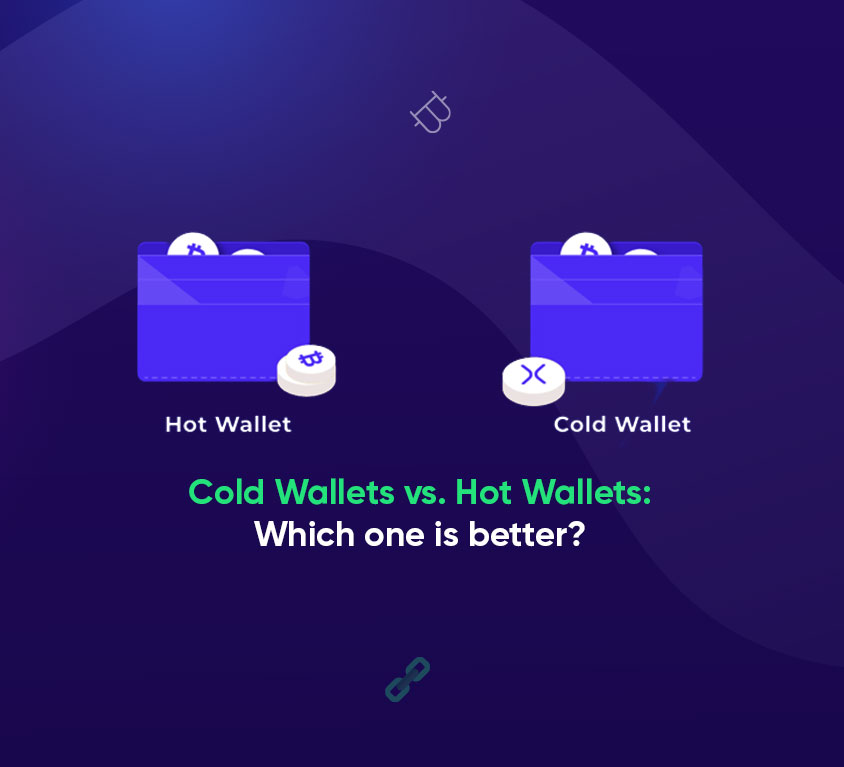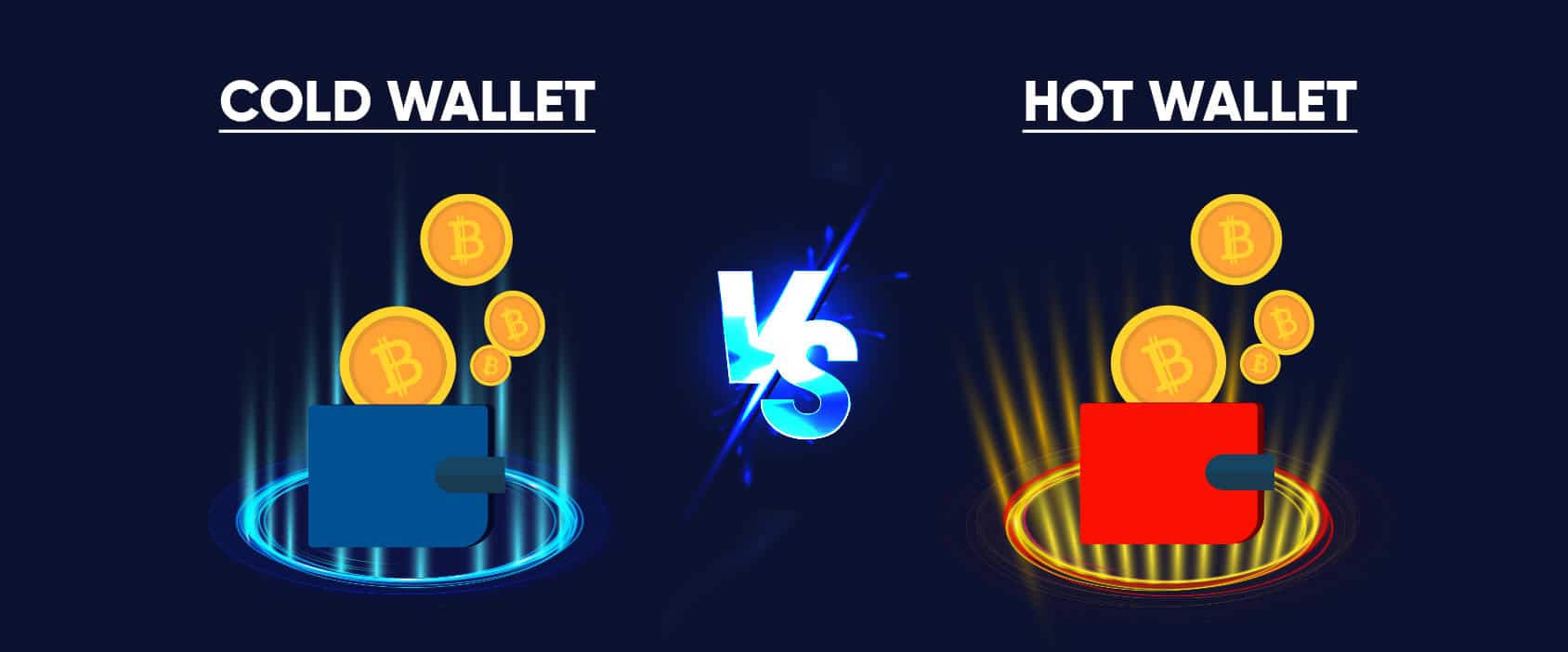
Introduction
Blockchain & Web3 Services Trusted By Leaders
- Develop innovative solutions using our state-of-the-art blockchain expertise.
- Achieve accelerated growth with robust & scalable Web3 consulting.
- Unlock 360-degree security with our top-rated blockchain development.
Cold Wallets vs. Hot Wallets: Which one is better?
Storing your cryptocurrency on an exchange is one of the least secure ways to keep it. Most crypto traders have been affected by hacking incidents or exchange shutdowns at some point in their trading careers. That’s why selecting a crypto wallet is so crucial. Several types of crypto wallets are available, each with its benefits. In this section, we’ll discuss hot and cold storage solutions, which are ideal for storing cryptocurrencies for a long time.What is a cryptocurrency wallet?
Cryptocurrency wallets are digital versions of bank accounts. It stores your public and private keys, interacts with the blockchain network, keeps track of your balances, and allows you to send and receive currencies.How do cryptocurrency wallets work?
A bank can be considered the blockchain, the bank account number is a public key, the crypto wallet is an online banking app, and the credentials associated with the online banking app as the Private Key. As with your bank account, the bank (blockchain) records and tracks all transactions going to and from your public Key. On the other hand, cryptocurrency wallets don’t store any coins but provide you with access to them (crypto payment gateways). Also, users can connect their crypto wallets to their computers or smartphones to control their transactions. In addition, whenever a user makes a new crypto wallet, the program generates a pair of keys:Public Key:
The Public Key generates an address you need to share with others to receive funds.
Private Key:
The private key is used for signing transactions, which is how you authorize them to send out of your wallet.
Learn more about blockchain and use cases of blockchain. Now that we’ve discussed crypto wallets, let’s categorize them as follows:- Software wallet
- Hardware wallet

Hot wallets:
Hot storage wallets are digital wallet applications (desktop and mobile applications) that create and store private keys online, making them accessible on any device connected to the Internet. However, they afford less protection than cold storage options, where your private Key never touches an internet-enabled device.
Cold wallets:
Also known as hardware wallets, are physical devices. Crypto cold wallets create and store your keys offline. Most of these wallets don’t require you to join them with your computer, allowing you to store currency offline.
Difference between the features of hot and cold wallets:
There are many reasons why hot wallets are popular among users, but I’m listing down a few here for better understanding.
Hot Wallet |
Cold Wallet |
|
|
Which is the better option to choose?
If you want to be able to trade at any time and not have to worry about the security of your money, then an exchange wallet is a good choice. However, if you are concerned about the safety of your funds, then it may be better to keep them in a cold or hot wallet. A cold crypto wallet is not connected to the Internet, while a hot wallet is connected online. For most people, leaving your cryptocurrency in an exchange wallet is fine. However, there is no proof of the exchange’s security, so looking for alternatives may be worthwhile. If you choose this alternative method and decide on a hot or cold storage wallet, it will require careful management but offer greater security than an exchange wallet. On the other hand, if you don’t decide on moving your holding out of your exchange, you can go ahead and probably leave them there.Cold wallets vs Hot wallets:
 An analysis of cold wallets vs hot wallets favors cold wallets for storing large amounts of crypto assets. It is the most suitable option to hold your crypto assets. Even though hot wallets are ideal for holding small amounts of cryptocurrencies, they aren’t as secure as cold wallets. Furthermore, The security of hot wallets is improving over time, but they will never match the level of protection offered by cold storage wallets.
The cold wallet is an offline and hardware-based device. A user can only access a cold storage wallet via a USB cable or Bluetooth connection to a computer or smartphone device to store large amounts of cryptocurrencies like Bitcoin (BTC) and Ethereum (ETH). Crypto cold wallets do not require an internet connection. Of course, if you want to use a cryptocurrency exchange platform like Binance, you’ll need to connect your cold wallet to a computer. Still, it allows you to access crypto assets at any time without compromising their security.
An analysis of cold wallets vs hot wallets favors cold wallets for storing large amounts of crypto assets. It is the most suitable option to hold your crypto assets. Even though hot wallets are ideal for holding small amounts of cryptocurrencies, they aren’t as secure as cold wallets. Furthermore, The security of hot wallets is improving over time, but they will never match the level of protection offered by cold storage wallets.
The cold wallet is an offline and hardware-based device. A user can only access a cold storage wallet via a USB cable or Bluetooth connection to a computer or smartphone device to store large amounts of cryptocurrencies like Bitcoin (BTC) and Ethereum (ETH). Crypto cold wallets do not require an internet connection. Of course, if you want to use a cryptocurrency exchange platform like Binance, you’ll need to connect your cold wallet to a computer. Still, it allows you to access crypto assets at any time without compromising their security.